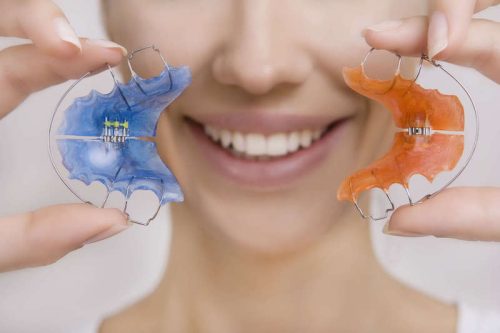Maintaining Orthodontic Results
At DeQuattro Orthodontics, we understand the dedication and investment it takes to achieve a beautifully aligned smile. Patients often assume once their braces or clear aligners are removed, their teeth will stay perfectly aligned forever. However, maintaining those results requires ongoing care.
Our skilled team, led by Dr. Frank DeQuattro, proudly serves Wakefield, Westerly, and surrounding areas in Rhode Island. Here, we explore the reasons why teeth may shift after orthodontic treatment and share practical tips to maintain your perfect smile. For personalized care, call our Westerly dental office at (401) 596-2264 or our Wakefield dental office at (401) 783-9890.
The Natural Movement of Teeth
Teeth are dynamic structures that naturally shift over time due to:
- Genetics: Your DNA influences jaw structure and tooth placement, which can cause gradual movement over the years.
- Aging: As you age, jaw growth slows, and supporting structures like gums and bones change, contributing to tooth movement.
- Daily Function: Chewing, biting, and even speaking exert pressure on your teeth, slowly altering their position.
Understanding this natural process underscores why post-treatment care is essential to preserving your smile.
The Role of Retainers
Retainers are the cornerstone of maintaining alignment after orthodontic treatment. Whether you use fixed retainers, clear retainers, or traditional wire retainers, their role is to:
- Prevent Shifting: Retainers help stabilize teeth as bones and gums adjust to their new positions.
- Adapt to Your Routine: While full-time retainer wear is recommended initially, you may transition to nightly use over time.
Consistent retainer wear, combined with regular check-ups, helps prevent teeth from shifting out of alignment.
Factors That Influence Shifting Teeth
- Oral Habits: Teeth grinding, nail-biting, and tongue thrusting can exert pressure on teeth, causing them to shift.
- Wisdom Teeth: Erupting wisdom teeth can push nearby teeth, leading to alignment changes.
- Gum and Bone Health: Poor oral hygiene or untreated gum disease weakens the structures that support your teeth, increasing the likelihood of movement.
- Bite Issues: Misaligned bites, such as overbites or crossbites, can disrupt the stability of your teeth.
- Lifestyle Factors: Chewing on ice, using teeth as tools, or consuming excessively hard or sticky foods can cause minor shifts over time.
Post-Treatment Orthodontic Maintenance
To maintain a perfectly aligned smile after orthodontic treatment:
- Regular Check-Ups: Schedule dental visits to monitor your teeth and confirm retainers fit properly.
- Oral Hygiene: Brush and floss daily to prevent gum disease and tooth decay.
- Dietary Choices: Avoid habits that strain teeth and eat a balanced diet to support bone and gum health.
- Nightguards: If you grind your teeth at night, consider a custom nightguard to protect your alignment.
Addressing Teeth Shifting: Solutions and Treatments
If you notice your teeth have shifted, there’s no need to worry. Common orthodontic solutions to fix shifted teeth include:
- Retainer Adjustments: Slight shifts can often be corrected by wearing retainers more frequently.
- Clear Aligners: For minor misalignments, clear aligners like Invisalign can help reposition teeth.
- Orthodontic Re-Treatment: Significant shifting may require further treatment, such as braces or other appliances.
- Evaluation of Oral Habits: Addressing underlying issues, such as bruxism or tongue posture, can prevent further movement.
Frequently Asked Questions
Yes, erupting wisdom teeth can exert pressure on surrounding teeth. Regular dental visits help monitor their impact and maintain intact alignment.
Initially, wearing retainers full-time is essential. Transitioning to nightly wear is common, but retainers should be worn indefinitely to maintain results and prevent tooth movement.
Yes, chewing hard items, poor oral hygiene, and untreated gum disease can all contribute to shifting upper and lower teeth.
While removable retainers are highly effective, natural aging and minor shifts may still occur. Regular orthodontic follow-ups can help address these changes.
Prioritize Your Smile’s Longevity; Schedule Now!
Maintaining your smile is a lifelong commitment. If you’re concerned about teeth shifting or need advice on post-treatment care, we’re here to help.
Call DeQuattro Orthodontics today at (401) 596-2264 (Westerly) or (401) 783-9890 (Wakefield) to schedule your consultation. We proudly serve South Kingstown, Charlestown, Weekapaug, and the surrounding Rhode Island communities. Let’s keep your smile looking its best!



